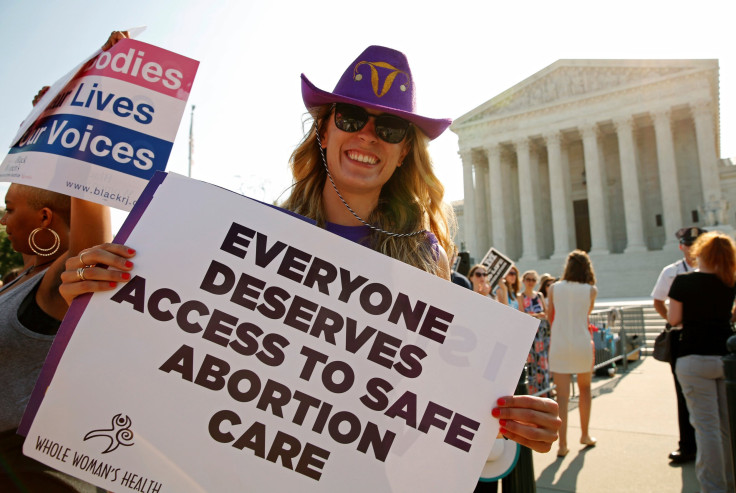Donald Trump On Abortion: After Women's March And Global Gag Rule, Where Exactly Does The President Stand?

One of President Donald Trump’s first orders of business was reinstating the Mexico City Policy, or the Global Gag Rule, which bars the U.S. government from giving money to foreign organizations that support abortion services.
“The president, it's no secret, has made it very clear that he's a pro-life president," White House press secretary Sean Spicer said Monday. "He wants to stand up for all Americans, including the unborn, and I think the reinstatement of this policy is not just something that echoes that value, but respects taxpayer funding as well."
The announcement came two days after millions took to the streets for the Women’s March on Washington, a global call to bring attention to women’s rights. Among other issues, women marched to preserve the right to safe and legal abortion access.
Despite Spicer’s claim Monday that Trump is a “pro-life president,” that’s not always been the case.
“I’m very pro-choice,” Trump said on "Meet the Press" in 1999.
By 2015, Trump had taken a 180-degree turn — he'd become anti-abortion. He explained the switch during a Republican primary debate in August 2015:
“Friends of mine years ago were going to have a child, and it was going to be aborted. And it wasn’t aborted. And that child today is a total superstar, a great, great child,” he said.
Even during the presidential campaign, Trump tended to speak about abortion in evasive terms. Last March 30, he suggested women who have abortions should be punished. Two days later, he said, “At this moment, the laws are set. And I think we have to leave it that way.”
But later that day, the Trump campaign released a statement meant to clarify Trump’s stance:
“Mr. Trump gave an accurate account of the law as it is today and made clear it must stay that way now — until he is president,” the statement read. “Then he will change the law through his judicial appointments and allow the states to protect the unborn. There is nothing new or different here.”
During the third presidential debate, moderator Chris Wallace asked Trump whether he wanted the Supreme Court to overturn Roe v. Wade, which ruled that outlawing abortions was unconstitutional.
“Well, if that would happen, because I am pro-life and will be appointing pro-life judges, I would think that would go back to individual states,” Trump said.
And, finally, there’s the issue of Planned Parenthood. In the past, Trump has said he would take federal funding away from Planned Parenthood as long as provides abortion services.
Defunding Planned Parenthood is also a priority for Republicans in Congress, as House Speaker Paul Ryan said earlier in January. But that may be easier said than done. Planned Parenthood funding comes from multiple sources, and much of the federal funding comes from Medicaid and Title IX. Neither of those funding sources actually pay for abortion services.
Plus, changing Medicaid funding would mean changing federal law. When states have tried to change Planned Parenthood’s funding in the past, federal courts have stopped them. Even though both the president and the majority of Congress are now for defunding Planned Parenthood, they're likely to be stymied in the courts.
© Copyright IBTimes 2024. All rights reserved.






















